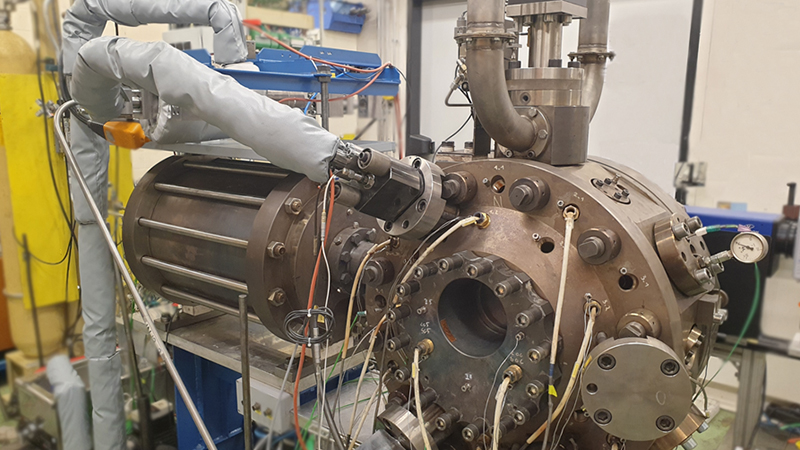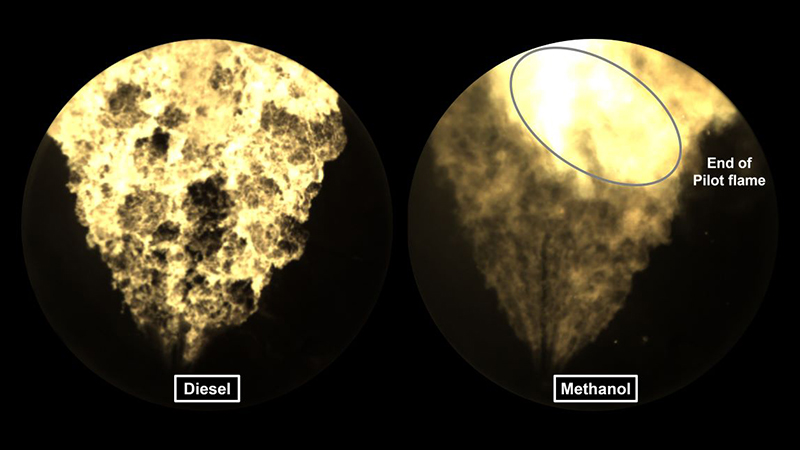Spray Combustion Chamber
Fast-tracking green fuel engine designs
WinGD’s innovative Spray Combustion Chamber (SCC) test facility is rapidly delivering insights into the most viable ammonia and methanol-fuelled engine designs.

Based at WinGD’s Engine Research and Innovation Centre in Switzerland, the SCC is helping the company to understand fuel injection and combustion characteristics which can be fed into virtual prototyping processes before engine concepts are implemented at single-cylinder or multi-cylinder test engine scale.
The use of ammonia and methanol-powered engines is expected to play a major role in the decarbonisation of the maritime sector through the use of such “green” fuels.
The SCC is unique in representing the pressure, temperature and flow conditions as well as component sizes of two-stroke marine engines, compared to the much smaller dimensions studied in most academic and commercial research into new fuels.
The test rig analyses fuel spray break-up, mixture formation and evaporation as well as ignition/combustion processes. Adjustable window positions allow optical investigation of fuel injection and combustion, along with thermodynamic and emission measurements.
Early research into future engine designs

Both WinGD’s ammonia-fuelled X-DF-A engines and methanol-fuelled X-DF-M engines will use high-pressure injection. However, the SCC can also be used to explore low-pressure injection and novel combustion concepts.
“The Spray Combustion Chamber allows us to iterate through trial concepts much more quickly and cost-efficiently than if we had to validate each one on a full-scale engine test,” says WinGD Team Leader Applied Research & Measurements, Beat von Rotz.
“This means that, within our established development timeframe, we can spend more time and effort honing the performance and reliability of the concepts that are likely to be successful, and ultimately deliver a better technology solution for ship owners and operators.”
The SCC can also be used with an exhaust gas sampling system to analyse emissions characteristics accordingly. WinGD is currently testing several configurations and settings in close collaboration with design engineers as well as performance and simulation experts.
WinGD’s investment in the SCC is the continuation of early exploratory work into liquid fuels, including alcohols such as methanol and ethanol, as part of the European HERCULES project. Under that project, WinGD developed a fuel flexible injector that was used to observe injection characteristics and combustion performance of a range of fuels.
Innovation
Engine Technologies
WinGD engines rely on a range of innovative technologies to deliver the performance our customers demand.
Minimise impact
Emissions reduction
Designing efficient engines is just one aspect of controlling greenhouse gas and air pollution emissions.
X-DF
Dual Fuel Design
WinGD is a pioneer in modern dual-fuel technology for two-stroke marine engines, with LNG-fuelled engines in operation since 2016.

